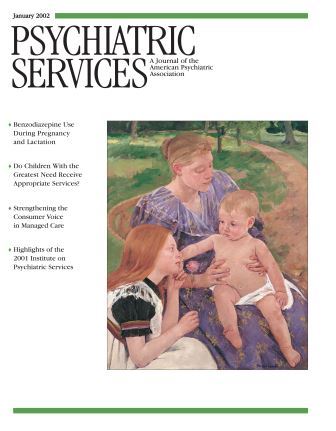Effectiveness of Assertive Community Treatment
To the Editor: My letter to the editor in the October issue questioning the effectiveness of assertive community treatment (1) elicited responses not only from the authors of the article toward which my critique was directed but also from such eminent amici curiae as Drs. Test and Stein, the inventors of assertive community treatment. Unfortunately, the responses illustrate precisely the problem I identified in my original letter. They attempt to defend assertive community treatment uncritically, and in the process they err.
In her letter, Dr. Burns agrees with my criticisms. However, she then suggests that I fail "to recognize the straightforward reporting of study findings and to understand the steps taken over time to improve the model." Dr. Burns missed the point of my critique, which was that the "straightforward reporting" is done unrigorously without close review of the methodology and the assumptions supporting such "findings."
In their letter, Drs. Rosenheck and Neale assert that their previous study (2) empirically showed that a Veterans Affairs (VA) program based on assertive community treatment reduced hospitalization. However, my argument is that reduced hospitalization attributed to assertive community treatment is the result of an administrative decision not to hospitalize, which rests squarely on the original model's guidelines, one of which requires "a virtual abstention from rehospitalizing any patients being managed in the community" (3). Thus the reduced hospitalization found in the study by Drs. Rosenheck and Neale probably resulted from an administrative rule and not from therapeutic intervention.
In their letter, Drs. Test and Stein do not disagree with my analysis of what causes the reduction in hospitalization, but they emphatically deny that coercion is part of assertive community treatment. Their denial conflicts with many reported experiences of people who implement or observe assertive community treatment in action. Psychiatrist Ronald Diamond, a colleague of Drs. Test and Stein, stated, "The development of Programs for Assertive Community Treatment…has made it possible to coerce a wide range of behaviors in the community…. Paternalism has been a part of assertive community treatment from its very beginning" (4).
Dr. Diamond's argument may be based on what Drs. Stein and Test themselves described as typical assertive community treatment: "When a patient did not show up for work one day, the psychiatrist accompanied other staff members to the patient's home and got him out of bed and off to his job" (5).
Further debate and evaluation are clearly needed. It behooves those of us who make decisions about treatments for others to be sure that we recommend interventions that are not harmful and whose effectiveness is supported by critically tested evidence rather than by consensus authority.
1. Gomory T: A critique of the effectiveness of assertive community treatment [letter]. Psychiatric Services 52:1394, 2001Link, Google Scholar
2. Rosenheck RA, Neale MS: Cost-effectiveness of intensive psychiatric community care for high users of inpatient services. Archives of General Psychiatry 55:459-466, 1998Crossref, Medline, Google Scholar
3. Marx AJ, Test MA, Stein LI: Extrohospital management of severe mental illness. Archives of General Psychiatry 29:505-511, 1973Crossref, Medline, Google Scholar
4. Diamond RJ: Coercion and tenacious treatment in the community, in Coercion and Aggressive Community Treatment. Edited by Dennis DL, Monahan J. New York, Plenum, 1996Google Scholar
5. Test MA, Stein LI: Practical guidelines for the community treatment of markedly impaired patients. Community Mental Health Journal 12(1):72-82, 1976Google Scholar



